My Dog Foaming at the Mouth: What Do I Do?

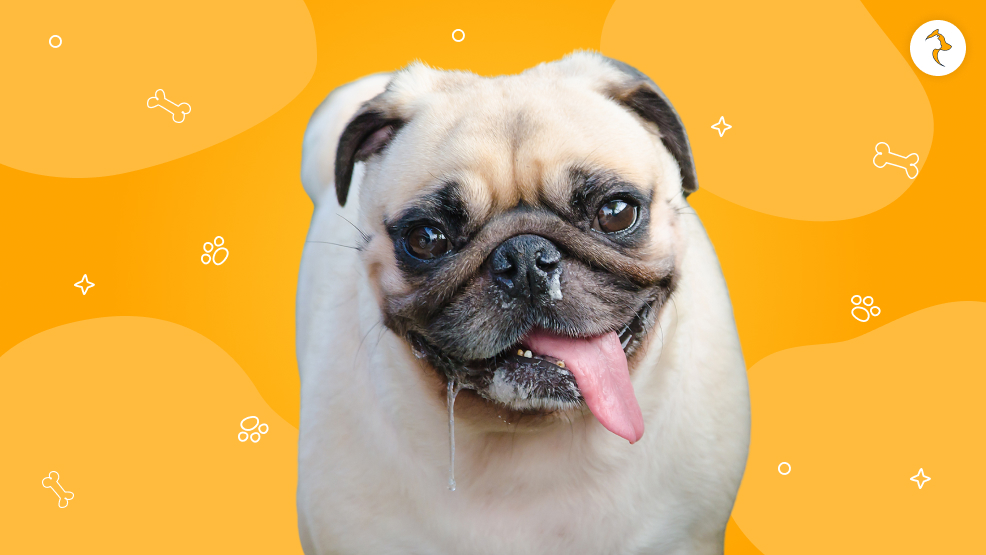
It is one of the most frightening things you can see when a dog foaming at the mouth. Although it is not an emergency per se, you want to know why this is happening and when you should call the vet. So, here’s a step-by-step guide to walk you through the situation.
Common Causes of Foaming at the Mouth
A few apparently innocuous conditions and a few reasonably serious medical conditions may lead to frothing in the mouth of dogs. Its etiology must be determined. Sometimes, dogs tend to foam at their mouth when subjected to an excessively long walk or an intense playing session.
This is due to the breathing heavily of the animal thus, excess saliva intermingled with air. Such things lead to the production of foamy bubbles.
Stress and Anxiety
Dogs become anxious due to stressful conditions like thunderstorms, travel in a car, or a new place. Drooling too much or frothing is caused by an emotional response to these conditions.
The diseases can also cause drooling in dogs. Some of these are poisoning, seizures, or rabies. Neurological or gastrointestinal disorders can also cause frothing.
Dental Problem
It encompasses that dental disease, including gum infection, tooth decay, or even abscess, can lead to highly drooling and foamy dogs. Pain inside the mouth also leads to slobbering saliva.
Symptoms of being Careful
A dog can just drool at his mouth; otherwise, he may experience any of the following conditions wherein he may be a serious case:
Excessive Drooling vs. Foaming
- Drooling Excessively: This is normally linked to excitement, stress, or a small dental problem. It can be indicative of mild distress.
- Foaming: If your dog is foaming at the mouth with thick, frothy saliva, especially in combination with other symptoms, it may be a serious situation and should be considered immediately.
Other Symptoms
- Lethargy: Your dog acts lethargic or nonresponsive; it can be a sign of poisoning or a neurological disorder.
- Vomiting or Diarrhea: In case your dog is frothing at the mouth and shows signs of vomiting, diarrhea, or loss of appetite, then this could be an indication of gastrointestinal disorder or poisoning.
- Seizures or Tremors: These can be accompanied by frothing at the mouth if your dog is seizing or in some type of neurological emergency. Feeling too hot: Fever with frothing may indicate infection or serious illness.
Some causes of foaming at the mouth, such as excitement or light exercise, are non-emergencies. Still, the following situations require an immediate veterinarian’s intervention.
- Your dog shows signs that have causes leading to vomiting, diarrhea, lethargy, and seizures.
- You suspect poisoning and frothing happen within minutes after your dog has ingested something poisonous, whether chemicals, plants, or human foods like chocolate.
- Your dog is distressed, frothing is not responsive to treatment, or frothing is present with dyspnea.
- Your dog is unconscious or even fainting, especially when it is frothing or drooling.
- Another animal has bitten your dog, and your dog begins frothing at the mouth. This can be either due to rabies or an infection.
Diagnosis and Veterinary Examination
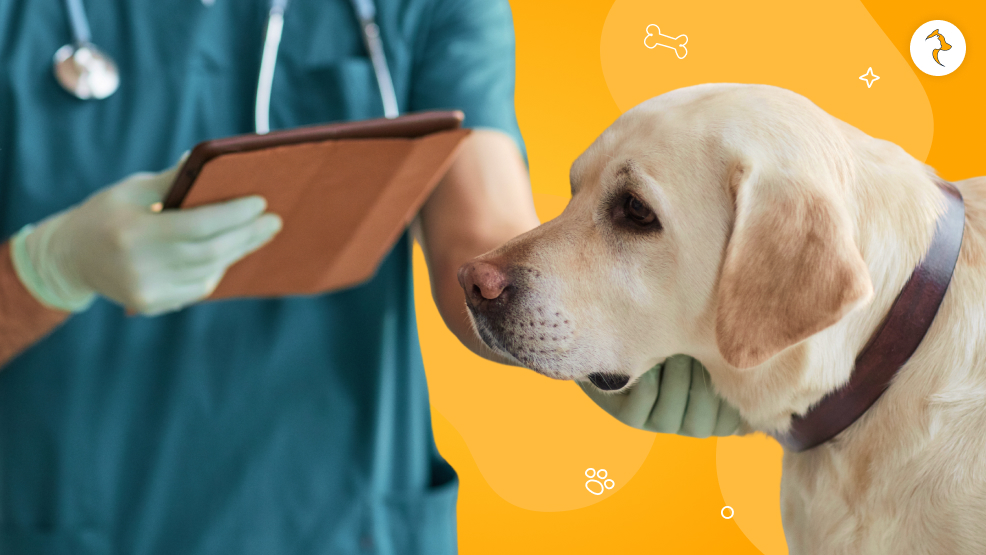
If your dog is foaming at the mouth and you’re concerned, a visit to the vet is essential for a proper diagnosis. Your vet will perform a thorough examination, which may include:
Physical Exam
Your vet will look at the mouth and teeth of your dog and then check the rest of the health to rule out dental issues or signs of poisoning.
Blood Tests
It can help test for infections, organ malfunction, or poisoning. Urine and Stool Tests: The vet might have ordered if he or she suspected an issue in the gastrointestinal region or poisoning.
Imaging
At times, a radiograph or an ultrasound scan could have been used to detect internal faults or foreign bodies.
Neurological Exam
If there were convulsions or other neurological manifestations of the symptoms, your veterinarian might have wanted to run a neurological exam to diagnose the possible cause of such a brain malfunction.
Treatment Options
Once your veterinarian has diagnosed the cause of foaming, the treatment course will depend on that source.
If the cause of foaming, in your pet dog’s case, is stress or anxiety, then such treatment might take the form of behavioral therapy alongside medication. He may be educated on using calming products like calming pheromone diffusers or calming collars.
- For Poisoning: If your dog has ingested something poisonous, your veterinarian might induce vomiting, use activated charcoal to soak toxins or provide fluids and supportive care.
- For Seizures: If your veterinarian suspects a seizure, she might prescribe anticonvulsant drugs or recommend further workup in the neurological plane to try and determine the cause.
- For Dental Conditions: If the cause of frothing is dental diseases, the veterinary practitioner would recommend dental cleaning, extraction, and antibiotics if there’s rampant infection.
- For Medical Conditions: The prescription would depend on the diagnosis; for instance, gastrointestinal distress would be addressed by medication, infections using antibiotics, and other forms of treatment depending on the medical conditions.
Preventive Care
If you see that your dog is foaming at mouth, then there are certain preventive measures that you can take to reduce frothing at the mouth by these measures.
- Good Oral Hygiene: Oral and dental check-ups may ensure good oral health. This may further be enhanced by providing some chew toys.
- Limit Stress: Provide a calm atmosphere to your dog during the stress of incidents like thunderstorms or travel. Reducing stress through calming products or training techniques helps.
- Prevention of Poisoning: Prevent toxins, poisonous plants, and foods like chocolate or grapes from reaching your dog’s environment. Be watchful of what your dog is exposed to outside.
- Scheduled Veterinary Visits: This check-up will help diagnose any health issues early enough before they worsen and become a basis for early treatment.
When to Panic!
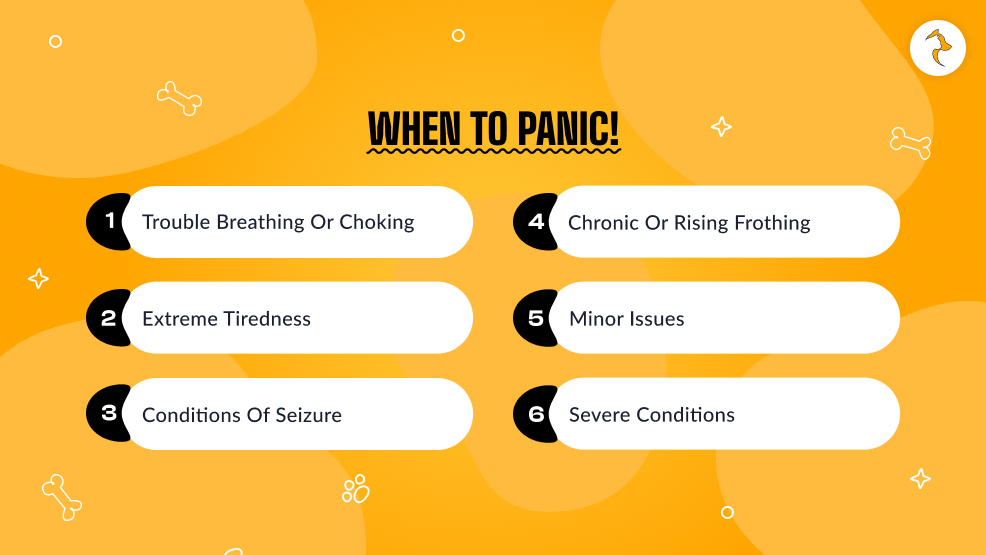
Red Flags some signs will call for immediate concern. Here are some of them.
- Trouble breathing or choking: This may be due to some serious conditions, including obstruction, poisoning, and severe allergic reactions.
- Extreme tiredness: If your dog is feeling extremely tired or is unresponsiveness may reflect neurological disease, severe infection, or toxic condition.
- The owner should take him in immediately because conditions of seizure cannot be made to “wait till it passes.”
- Chronic or rising frothing: Which often accompanies other signs like vomiting, diarrhea, or pain, should be addressed promptly by your veterinarian
- Minor Issues: Your dog foams or drools slightly while exercised or under stress; in that case, it does not mean an emergency if it is accompanied by other symptoms such as a lack of vomiting, diarrhea, or depression, but do check on how the pet is faring along and call your vet if it persists.
- Severe Conditions: Immediately take your dog to the vet if it suddenly foams and appears to come out of nowhere, accompanied by frequency and other symptoms of vomiting, lethargy, tremors, seizures, or difficulties with breathing. These can be potentially severe conditions, including poisoning, neurological disorders, and more that are life-threatening.
Wrapping Up!
There are several reasons why dogs may foam at the mouth, ranging from very innocuous physical exercise to serious medical conditions.
Knowing what may cause such a reaction and what signs are evident, you can establish whether the reaction is minor or something serious that should be rushed to a veterinarian.
So, always watch such signs, especially other signs of seriousness. Thus, your dog can remain safe and healthy with proper care, attention, and preventive measures.







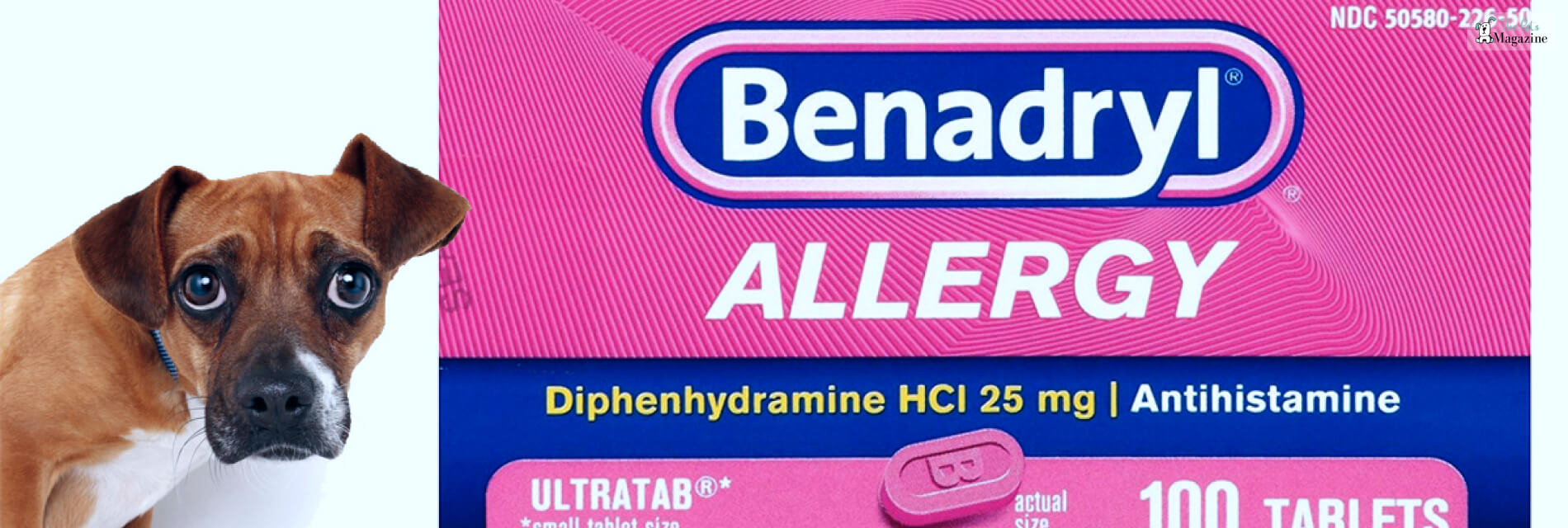
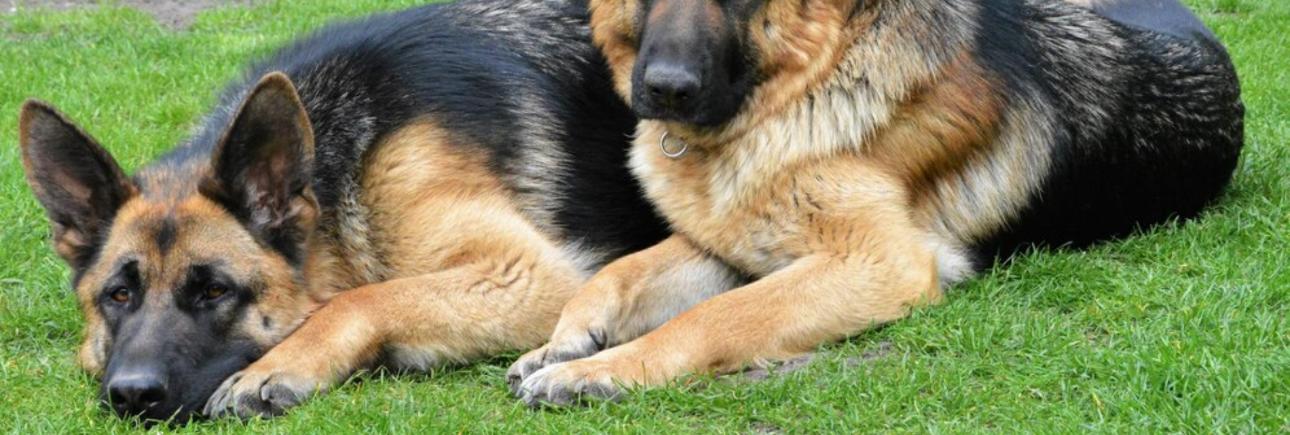
Leave A Comment